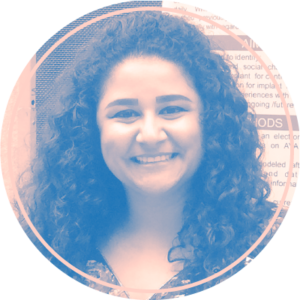 What are your gender pronouns?
What are your gender pronouns?
She, her
Where are you from?
Southern California
What’s your specialty or area of expertise?
I specialize in Adolescent Medicine, a subspecialty of pediatrics. I work with youth between the ages of 12 and 21, although at times I see younger and older patients with specific health care needs. I also provide general health care services, such as physical exams and sick visits, but my specialization is in reproductive health for adolescents. I have additional expertise in working with LGBTQ youth in both general health care needs and in specialty care, specifically transgender health care services. My other interests include management of eating disorders and mental health needs of adolescents, such as depression, anxiety, and substance abuse.
What first inspired you to become a doctor?
My parents were my largest sources of inspiration and support early on—and they still are. I could not be the doctor I am today without them. They pushed me to work hard and gain experience early; in high school I was able to complete a certified nursing assistant course. I worked weekends in a local hospital for most of my college years. I learned compassion for the sick and found my first passion: pediatrics. My interest in pediatrics further blossomed during medical school. Then, during pediatric residency, I found my true calling: Adolescent Medicine. Working with adolescents made me feel needed and capable. It was also where I found my calling to become an advocate.
What story about one of your patients most sticks with you?
Tiana (name changed) suffered with sickle cell disease, a painful blood disorder that landed her in the hospital all too often. She was unable to live her life as a typical teenager, as she would frequently spend days to weeks in the hospital with excruciating pain, surrounded by doctors as well as sick children. Such a life would make anyone unhappy, and I had heard that Tiana could be difficult to work with. My first time meeting her, though, was not I expected, and I was able to connect with her. This had an amazing impact on her health and how long she needed to be in the hospital each time her pain was bad enough to need treatment. Not only was I able to help manage her pain and other medical needs, but it became clear who she really was: kind, caring, and in need of support. The more I worked with her, the stronger our patient-doctor relationship became, and her relationship with my colleagues improved too. I could also see my ability to relate to adolescents improve. A year or two after I finished residency, I heard that Tiana passed away from complications of her disease. This was heartbreaking for me. I think about Tiana often, and know she is one of the reasons I went into this field of medicine.
What current policy issue especially motivates you to be an advocate?
There are many health care-related policies that affect the health and well-being of adolescents and their families, and there are many recent policy issues that impact my work and the populations I serve. The policies that most drive me to be an advocate include those that reduce access to health insurance; those that provide undue protections to providers who practice with prejudice; those that threaten access to contraception, abortion, and other necessary reproductive health care services; the unending threats to LGBTQ rights; and the threats to immigrant populations within our country. My work brings me in contact with people from all walks of life, and I see the impact that unjust policies have on all of these people. As a physician, not only have I sworn to do no harm, I feel it is my duty to represent the people I serve in the political arena. The current political climate is what drives me to be an advocate.
Who is your social justice hero?
My social justice heroes are not well known. The first is Dr. Sara Horstmann, a pediatrician. She was the first physician I worked with in the advocacy arena. During residency, she trained me and my colleagues on effective advocacy. Her positive energy and can-do attitude made it easy practice advocacy. I learned to sit with senators and representatives and give my expert opinion on policies that would impact the health of children.
The second is Dr. Diane Tanaka, an Adolescent Medicine specialist. While we did not directly advocate together, Dr. Tanaka was an inspiration. She works with two distinct populations in need: teens with severe chronic health conditions and homeless youth. Her passion is visible in her everyday work, but it shined bright when she marched in the streets for women’s justice and for immigrant right. It shined the brightest when she spoke at the women’s march in Los Angeles.
Working with these two strong and confident female physicians in two different phases of my medical training has inspired me to become the advocate that I am today.

